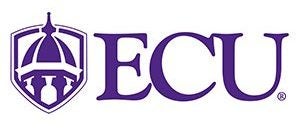Here are 8 tips to help you succeed in our online (Distance Education) classes:
1. Check your ECU email account regularly and often
Here is where you will get important notices from ECU and MTLFF, including information about course offerings, priority registration, etc. Your email is where you will hear from your advisor and your individual instructors about coursework, CAPs, etc. If you go for long periods of time without checking your ECU email account, you are likely to miss some very important information.
2. Keep up with the Academic Calendar
You can find the calendar on the ECU Homepage (www.ecu.edu): scroll down until you find Academic Calendar. Here you will find all the important dates for Registration, deadlines for dropping courses without a grade, or completing incompletes, etc.
3. Locate Canvas and familiarize yourself with the Canvas Student Guides & Videos
Go to the ECU Homepage (www.ecu.edu) and click on the Canvas icon at the lower left of the page. Select Student Training and Student Guides & Videos; explore them thoroughly. You can contact Canvas 24/7 Help (at the bottom of the Canvas page) in case you have questions.
4. Log into Canvas using your Pirate ID and password
A page will come up that lists the courses you are taking. Click on the course titles to access your classes. Note that a class you have just registered for will not show up on this page until your instructor has made it available. Some instructors don’t make courses available until just before the semester starts; others will make their classes available much earlier so that you can get a head start. Keep checking regularly.
5. Review each entire Canvas course site carefully at the beginning of the course
Each instructor uses the Canvas platform differently, so it may take you some time to familiarize yourself with the course layout. Some instructors post specific assignments on a weekly basis; others will have the whole course up from the beginning. Either way, you want to click on every menu button and open every folder to discover the wonders available for your use.
6. Download materials from Canvas ahead of time
If Canvas goes down or you lose your internet connection, you’ll have what you need. Download by right-clicking on the document title; this is much faster than opening a document inside Canvas and then saving it.
7. Save all your own work and back it up often to an external storage device
Most instructors will not accept computer glitches or crashes as excuses for late work.
8. Save all the work you do in your classes until you have finished your degree
It’s especially important to save papers with your instructors’ comments and grades. You will have evidence if there should be a grade dispute or the instructor loses their grade book or computer in a hurricane (been there!). You will also be able to track your own progress as a writer and critic and thus make better use of your education and maximize your experience with the CAP. If you choose the CAP, you will need these marked papers for the portfolio itself. In addition, when it comes time to request recommendation letters from your instructors, those marked, graded essays help your instructors write standout letters with lots of specifics!
